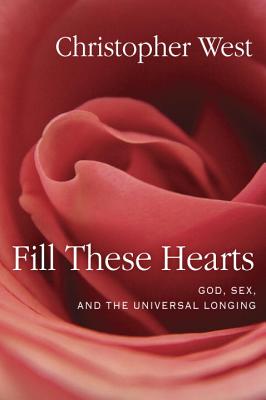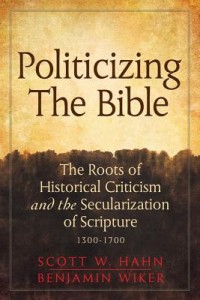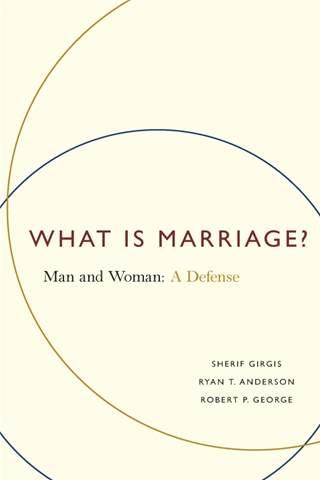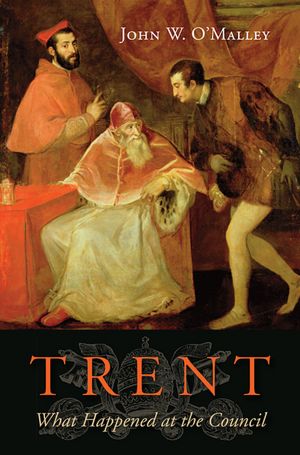One perk of being a book reviewer is that publishers regularly send emails and catalogs promoting their newest titles, along with a steady stream of advanced review copies.
I don’t have time to read and review them all, so each month, in addition to my regular reviews, I highlight a few new and upcoming books that I’m particularly excited about.
(The descriptions below are either from the publisher or from Amazon.)
Fill These Hearts: God, Sex, and the Universal Longing
by Christopher West
Image, 224 pages, hardcover
Released on January 8, 2013
 The bestselling author, speaker, and teacher of John Paul II’s Theology of the Body explores the yearning we all have for God and each other.
The bestselling author, speaker, and teacher of John Paul II’s Theology of the Body explores the yearning we all have for God and each other.
Fill These Hearts is a book about desire. Not trivial wants or superficial cravings, but the most vital powers of body and soul, sexuality and spirituality, that haunt us and compel us on our search for something.
Weaving life-altering lessons together from classical and contemporary art, pop music, movies, and the Christian mystical tradition, popular theologian Christopher West explores the ancient but largely forgotten idea that the restless, erotic yearnings we feel in both our bodies and our spirits reveal the cry of our hearts for God. Along the way, West blows the lid off the idea of Christianity as a repressive, anti-sex religion by demonstrating that Christ came to stretch and inflame our desire for love and union to the point of infinity.
Politicizing the Bible: The Roots of Historical Criticism and the Secularization of Scripture
by Dr. Scott Hahn and Dr. Benjamin Wiker
Crossroad, 457 pages, hardcover
Released on January 1, 2013
 Resisting the typical, dry methods of contemporary scholarship, this powerful examination revisits the biblical days of life-and-death conflict, struggles for power between popes and kings, and secret alliances of intellectuals united by a desire to pit worldly goals against the spiritual priorities of the church. This account looks beyond the pretense of neutrality and objectivity often found in secular study, and brings to light the appropriation of scripture by politically motivated interpreters.
Resisting the typical, dry methods of contemporary scholarship, this powerful examination revisits the biblical days of life-and-death conflict, struggles for power between popes and kings, and secret alliances of intellectuals united by a desire to pit worldly goals against the spiritual priorities of the church. This account looks beyond the pretense of neutrality and objectivity often found in secular study, and brings to light the appropriation of scripture by politically motivated interpreters.
Questioning the techniques taken for granted at divinity schools worldwide, their origins are traced to the writings of Machiavelli and Marsilio of Padua, the political projects of Henry VIII, Thomas Hobbes, and John Locke, and the quest for an empire of science on the part of Descartes and Spinoza. Intellectual and inspiring, an argument is made for bringing Christianity back to biblical literacy.
“Dr. Scott Hahn has a way, which is both readable and scholarly, of inspiring his readers to discover the great treasure of Scripture…With the touch of a master’s pen, he explains some very important and yet complex concepts concerning the reliability, efficacy, meaning, and importance of Sacred Scripture for Catholics.”
— Cardinal Donald W. Wuerl, Archbishop of Washington
What Is Marriage?: Man and Woman: A Defense
by Robert George, Sherif Gergis, Ryan T. Anderson
Encounter Books, 152 pages, paperback
Released on December 11, 2012
 Until yesterday, no society had seen marriage as anything other than a conjugal partnership: a male-female union. What Is Marriage? identifies and defends the reasons for this historic consensus and shows why redefining civil marriage is unnecessary, unreasonable, and contrary to the common good.
Until yesterday, no society had seen marriage as anything other than a conjugal partnership: a male-female union. What Is Marriage? identifies and defends the reasons for this historic consensus and shows why redefining civil marriage is unnecessary, unreasonable, and contrary to the common good.
Originally published in the Harvard Journal of Law and Public Policy, this book’s core argument quickly became the year’s most widely read essay on the most prominent scholarly network in the social sciences. Since then, it has been cited and debated by scholars and activists throughout the world as the most formidable defense of the tradition ever written. Now revamped, expanded, and vastly enhanced, What Is Marriage? stands poised to meet its moment as few books of this generation have.
Rhodes Scholar Sherif Girgis, Heritage Foundation Fellow Ryan T. Anderson, and Princeton Professor Robert P. George offer a devastating critique of the idea that equality requires redefining marriage. They show why both sides must first answer the question of what marriage really is. They defend the principle that marriage, as a comprehensive union of mind and body ordered to family life, unites a man and a woman as husband and wife, and they document the social value of applying this principle in law.
Most compellingly, they show that those who embrace same-sex civil marriage leave no firm ground—none—for not recognizing every relationship describable in polite English, including polyamorous sexual unions, and that enshrining their view would further erode the norms of marriage, and hence the common good.
Finally, What Is Marriage? decisively answers common objections: that the historic view is rooted in bigotry, like laws forbidding interracial marriage; that it is callous to people’s needs; that it can’t show the harm of recognizing same-sex couplings, or the point of recognizing infertile ones; and that it treats a mere “social construct” as if it were natural, or an unreasoned religious view as if it were rational.
If the marriage debate in America is decided soon, it will be with this book’s help or despite its powerful arguments.
Trent: What Happened at the Council
by John W. O’Malley
Harvard University Press, 352 pages, hardcover
Released on January 15, 2013
 The Council of Trent (1545–1563), the Catholic Church’s attempt to put its house in order in response to the Protestant Reformation, has long been praised and blamed for things it never did. Now, in this first full one-volume history in modern times, John W. O’Malley brings to life the volatile issues that pushed several Holy Roman emperors, kings and queens of France, and five popes—and all of Europe with them—repeatedly to the brink of disaster.
The Council of Trent (1545–1563), the Catholic Church’s attempt to put its house in order in response to the Protestant Reformation, has long been praised and blamed for things it never did. Now, in this first full one-volume history in modern times, John W. O’Malley brings to life the volatile issues that pushed several Holy Roman emperors, kings and queens of France, and five popes—and all of Europe with them—repeatedly to the brink of disaster.
During the council’s eighteen years, war and threat of war among the key players, as well as the Ottoman Turks’ onslaught against Christendom, turned the council into a perilous enterprise. Its leaders declined to make a pronouncement on war against infidels, but Trent’s most glaring and ironic silence was on the authority of the papacy itself. The popes, who reigned as Italian monarchs while serving as pastors, did everything in their power to keep papal reform out of the council’s hands—and their power was considerable. O’Malley shows how the council pursued its contentious parallel agenda of reforming the Church while simultaneously asserting Catholic doctrine.
Like What Happened at Vatican II, O’Malley’s Trent: What Happened at the Council strips mythology from historical truth while providing a clear, concise, and fascinating account of a pivotal episode in Church history. In celebration of the 450th anniversary of the council’s closing, it sets the record straight about the much misunderstood failures and achievements of this critical moment in European history.
